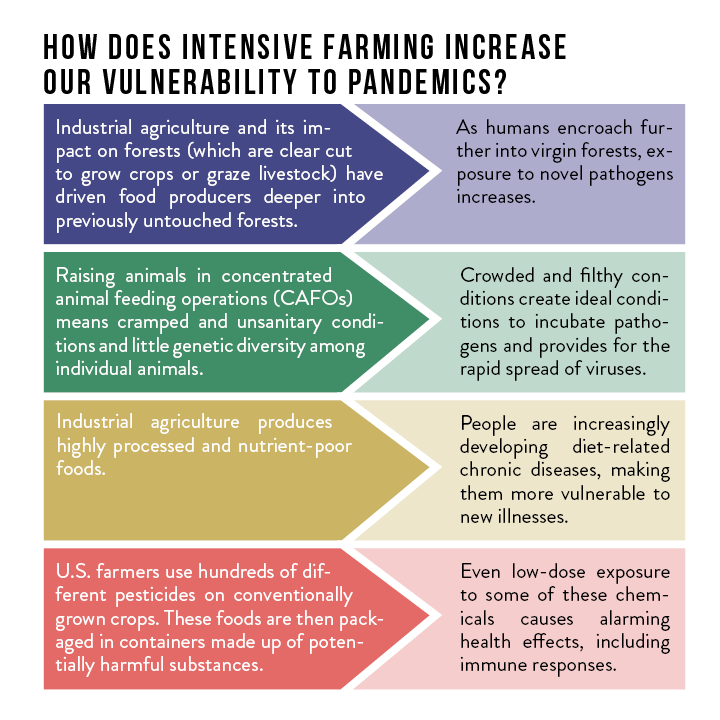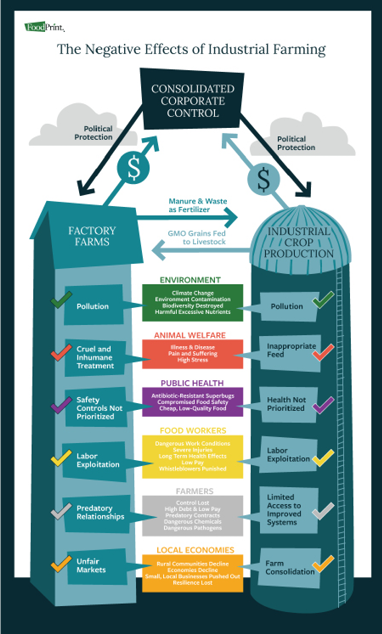
Industrial Agriculture’s COVID Connection
by Tamara McFarland, Cooperation Humboldt
 Industrial agriculture refers to the large-scale, intensive production of crops and animals, often involving chemical fertilizers and pesticides on crops or the routine, harmful use of antibiotics in animals (even when the animals are not sick).
Industrial agriculture refers to the large-scale, intensive production of crops and animals, often involving chemical fertilizers and pesticides on crops or the routine, harmful use of antibiotics in animals (even when the animals are not sick).
This system is decimating our environment and having devastating effects on human health, especially in communities of color. These impacts are deeply connected – what we do to our environment, we do to ourselves.
The COVID-19 pandemic has brought into focus many flaws in our system, including the way that Big Ag and Big Food have been destroying our environment and our health for decades.
Put simply, the current model of food production is not compatible with long-term human habitation of this planet.
- Industrial farming is directly responsible for destroying waterways and fisheries, creating oceanic dead zones, killing the Great Barrier Reef, the loss of native prairies and grasslands (which are essential habitats for birds), and the near-extinction of the pollinators we depend on for food production.
- Food production results in emissions of carbon dioxide, methane and other planet-warming gases through land clearing and deforestation, digestion by cattle and other livestock, and the production and use of fertilizers. Overall emissions are equivalent to about 30% of total global emissions.
- Large-scale farming has depleted our soils through improper land use and the application of pesticides, herbicides, fungicides, and antibiotics. Without healthy soil, we cannot grow nutritious food. In this country, topsoil is currently being eroded 10 times faster than it can be replenished.
A decentralized, locally-focused food supply is more stable than one that relies on transporting food over long distances. Regionally based systems make us more resilient in the face of future pandemics and other disruptions. When supply chains are stressed – whether due to a pandemic, earthquake, or other disaster – the importance of local food production becomes crystal clear.
Get to know – and support – your local farmers and other food producers. Grow some of your own food. Share knowledge and food with your neighbors. Your health and the health of your community rely on it.
